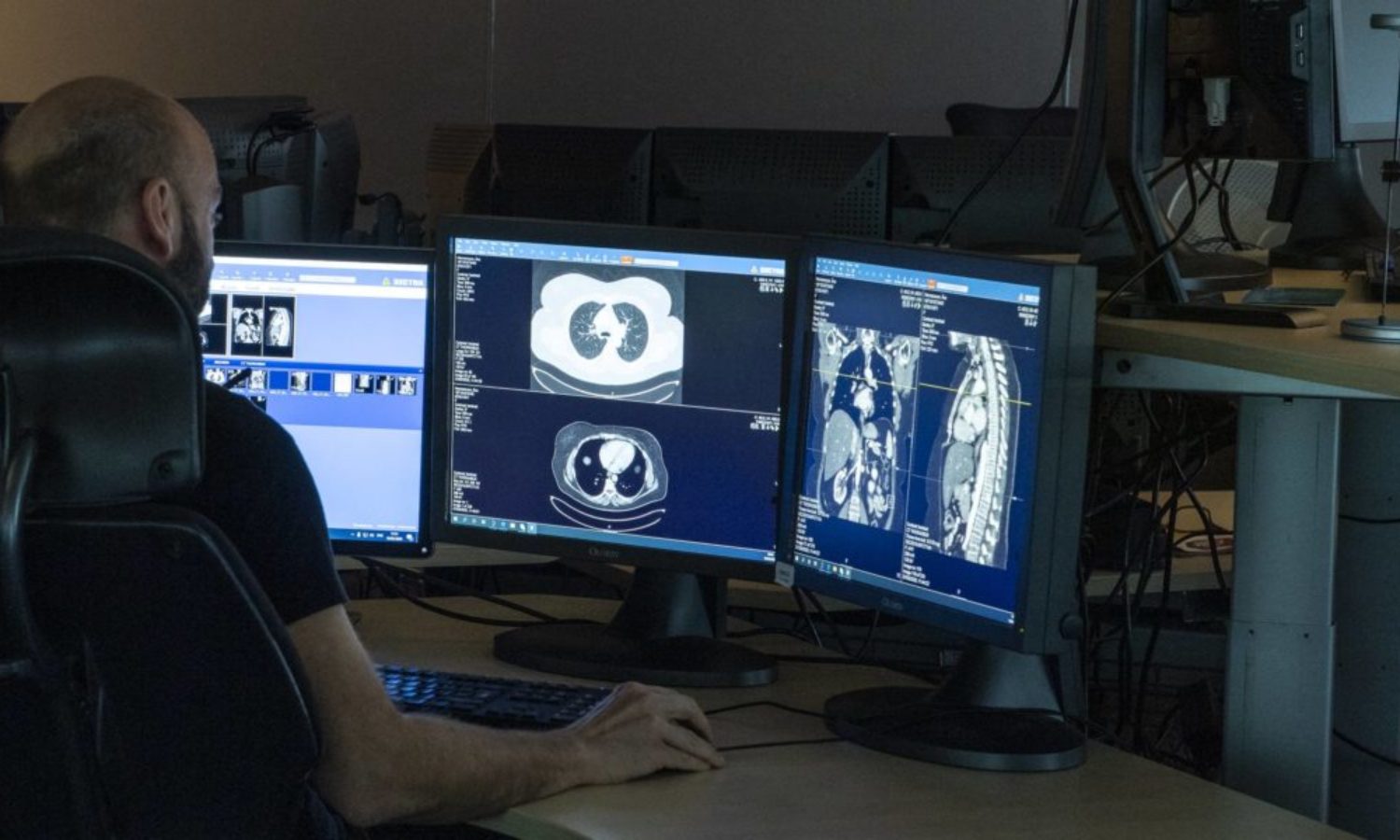Fausto Labruto, the Director of Emergency Radiology of TMC remembers as if it were yesterday when the Emergency Section celebrated the milestone of 500 radiology cases in one day. He states:
This month we have been over 900 cases three times, including our all-time high of 988 cases in one day, just shy of the historical four digits figure. Most of our growth is due to the end of COVID-related restrictions in our client countries, however, since the beginning of the year, we have also started with new client hospitals in Denmark and UK, and increased coverage hours for several client hospitals.
Growth comes with challenges, first balancing demand with capacity and keeping up medical excellence in the face of increasing pressure. As volumes are increasing, we have managed to keep our turn-around-times, averaging over target (97% within one hour) for integrated clients and just shy of target (92% within one hour) for non-integrated clients. I wish to praise the work of Head of Section Marielle Kuijper and Emily Clewett Dahl and Supply Chain and Operations Manager Zane Laurent who are responsible for obtaining this.
With increasing volumes, we have found it more challenging to turn around hundreds of phone calls per day. Starting from this month, the Scandinavian Operations team has implemented a new system called “Critical Calls“, which has obtained excellent results in answering calls in a timely manner. We have already received praise from some of our largest clients on how effective this project has been: a true game-changer.
Our clients are also very impressed by our early adoption of AI tools in Emergency Radiology. We have now established AI-assistance for diagnosis of pulmonary embolism and intracranial bleedings, and more applications are being evaluated. I wish to thank the AI Centre of Excellence for putting us at the cutting edge of technology.
Speaking of technology in radiology, I am excited to announce that in two weeks the Swedish Emergency Radiology Team will start reporting emergency CT Perfusion performed on stroke patients at a University Hospital in Sweden. This is the first time we offer this special service, which places us in a special class among providers of Emergency Teleradiology.

